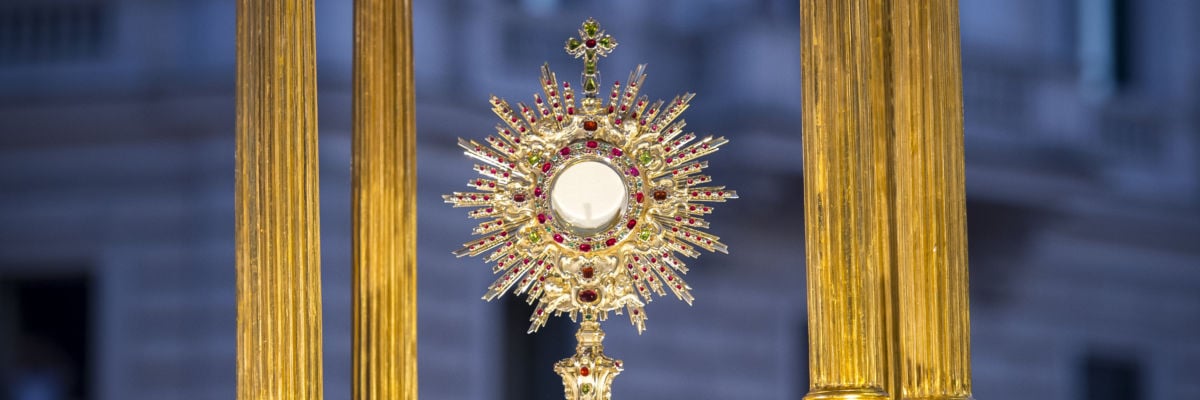
The words of institution at the Last Supper—“this is my body…this is my blood”—have been cause for much debate over the centuries. Catholics say that with these words Jesus literally changed bread and wine into his body and blood. Protestants say he intended the bread and wine to be only a symbol. In this video, Karlo gives two reasons to support the Catholic view that perhaps some Catholics or Protestants have never considered before.
Transcript:
Is the Eucharist really the Body & Blood of Jesus?
The words of institution at the Last Supper—“This is my body…this is my blood”—have been cause for much debate over the centuries. Catholics say that Jesus literally changed bread and wine into his body and blood. Some Protestants say he intended the bread and wine to be only a symbol.
There are many reasons that we could give for the Catholic view, but I just want to share a few here that perhaps doesn’t get enough attention by both Catholics and Protestants.
First, it would seem that at least the Eucharist couldn’t be merely a symbol, in which case it would be just ordinary bread and wine, because according to Jesus in John Chapter 6, the Eucharist is the new manna. Recall from Exodus 16 that the old manna was miraculous: it appeared every day with the coming of the dew and it never lasted more than a day, except on the Sabbath. This occurred until the Israelites entered the Promised Land according to Joshua 5:12.
If the Eucharist were just ordinary bread and wine with no miraculous element to it, then the new manna would be inferior to the old. But that’s a no-go when it comes to Biblical typology. The New Testament fulfillment must always be greater than the Old Testament type.
Second, the typological precursor of the Last Supper demands real and substantial blood. Jesus’ use of the phrase, “blood of the covenant,” reveals that he intends the Last Supper to be for the New Covenant what the sprinkling of blood on Mt. Sinai in Exodus 24:8 was for the Old Covenant—namely, the ratifying ceremony. If real blood was used for the ratifying ceremony of the Old Covenant, then how much more need there be real blood for the ratifying ceremony of the New Covenant, which is the Last Supper?
Jesus didn’t intend his apostles to interpret his command to “eat his body” and “drink his blood” as a metaphor. He intended it to be taken literally—they were to consume the New Manna, the new blood of the covenant, which is his body and blood.
If you want to learn more about this topic and others like it, visit our website at catholic.com. Also, visit catholicanswersspeakers.com to learn how you can bring me out to speak at your event.
For Catholic Answers, I’m Karlo Broussard. Thanks for watching.



